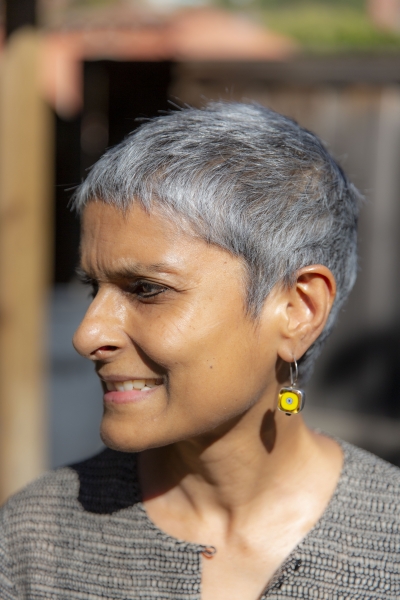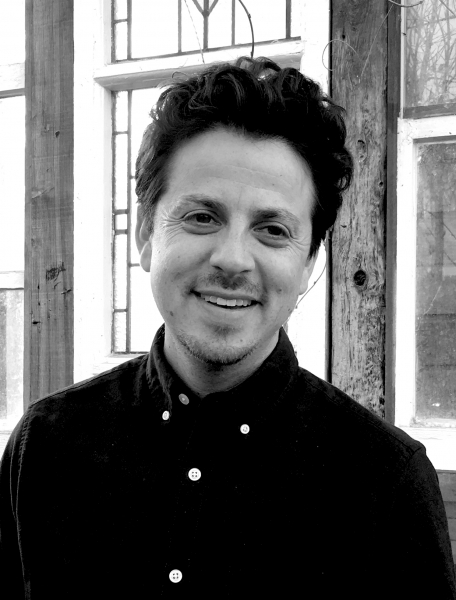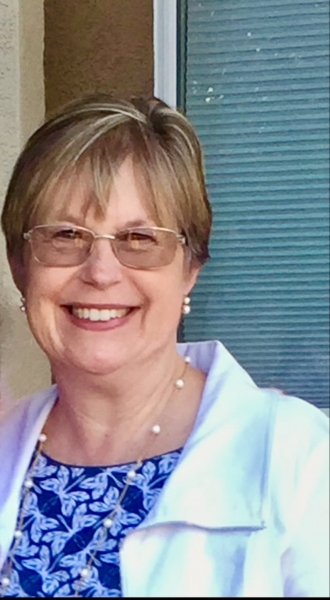Career Transitions

Q&A with outgoing and incoming faculty and staff
Faculty
Parama Roy
Professor of English Parama Roy is retiring this spring, 2022.
 How has the department changed since you first started at UC Davis?
How has the department changed since you first started at UC Davis?
In many ways the current composition of the faculty reflects new directions in the discipline over the past decade and a half. We now have strengths in the environmental humanities, the digital humanities, games and gaming, popular culture, science and technology studies, performance studies, and studies of race and ethnicity that we didn’t have before—at least not to the same degree. In practically all of these instances we have produced, and continue to produce, field-leading research rather than echoing broader academic trends. We continue to be strong, as we always have been, in the traditional historical periods (especially medieval and early modern, nineteenth-century American, and Victorian studies) as well as in feminist studies, critical theory, poetics, and queer theory. I am hugely pleased about the fact that we have hired two junior scholars of global Black literatures who do enormously consequential work in ecocriticism, comparative imperialisms, historiographies of slavery in the Black Atlantic, and race outside an Anglo-American context.
That we manage to do what we do with our terribly attenuated numbers (the faculty roster has shrunk by a quarter during my tenure here without any reduction in the number of majors) is remarkable, though some significant gaps remain in our coverage. We have gone from having two of the world’s most eminent Romanticists, both scholars with remarkably wide-ranging intellectual interests, to none at all. I hope we will rectify this soon.
The graduate student body is also significantly different from when I joined the faculty, both in its range of interests and its demographic make-up. I never fail to be impressed by the critical imagination and verve our graduate students bring to their doctoral work and to their thinking about the future. The ones I know are engaged in many more kinds of writing and engagement—academic, interdisciplinary, and public-facing—than I could imagine undertaking at any point in my career. One, for instance, has done field research with the Bodega Marine Lab that he has brought to bear upon his work on wetland ecologies; another has collaborated with an eminent historian to produce a podcast on tea for the DHI; a third student has a lovely essay in Electric Literature on wolves and wolf girls. And this is naming only a few of the projects graduate students have conceived.
How has UC Davis–your colleagues, students, the institution–shaped your research?
Davis has been generative in all kinds of ways. Its pre-eminence in food studies meant that I had multiple interlocutors when I was finishing Alimentary Tracts. The work that some of my advisees did in this area—Sarah’s Petersen’s brilliant dissertation on dietary reform and occult practice in nineteenth-century America is one that comes to mind—helped me refine some of my ideas. Work in the environmental humanities across a number of disciplines, but especially in English and anthropology, has fed into my ongoing work on empire’s nonhuman turn. The Middle East/South Asia studies programme has been a second home for me, reminding me of the urgency of thinking outside national and linguistic silos. Two of the department’s Derrida scholars—David Simpson and Scott Shershow—are now retired, but their work has informed the ways I think and write. I have also been fortunate in having the best Victorianist colleagues one could hope for.
Can you share with us any particularly memorable teaching moments?
I have loved teaching an upper-division class on refugee literature, which I have done since 2019. We read a range of materials—essays, short and long fiction, memoirs, oral history, and graphic narratives. I am moved and humbled by the critical attentiveness that students bring to these sometimes rebarbatively difficult materials, and the global literacy they are hungry to acquire.
What are you looking forward to most about retirement?
First and foremost, the freedom to learn things that have no obvious professional payoff. I am planning to learn Urdu, one of the world’s most elegant languages, online at Osmania University. (I know the language, its vocabulary and grammar, but not the script. I would like to be able to read Urdu poetry.) I’ve promised to help a high school friend write a social history of twentieth-century Hyderabad, where we grew up many lifetimes ago. I hope to finish, finally, my own book on empire and nineteenth-century cultures of sacrifice. I hope also to travel more; it’s something I’ve missed doing during the pandemic.
Also, it will be fantastic to stop setting an alarm.
Any words of advice for those just starting out their academic careers?
I do not know if the following is specifically aimed at those starting their academic careers, but it is what I tell my own graduate students, and it is what I always have to remind myself to practice. Given that a fair portion of my research and my teaching involves the literature of empire, I rarely encounter writers who can be described as ideologically untainted. Nor, when I do find any pure-souled writers, do they prove terribly compelling; I am not really interested in writers who say all that we want to hear. So I try not to bypass what might be troubling about the writing or the biography of a writer while also not reducing the work or the life to an inventory of misdeeds. I try, moreover, not to be defensive or apologetic about what I teach or read or write about, even though we (faculty and graduate students alike) are often reluctant to take seriously material that is obviously or even slightly illiberal; we prefer to read only to admire (or disavow). "Do not accuse; do not excuse"—Gayatri Spivak's dictum—seems a good rule to live by. Besides, I am deeply wary of modes of reading that I call diagnostic—where the intent is (only) the uncovering of offenses and nothing more. Kipling, whose work I love, is an imperialist, certainly (and often a racist and misogynist too), but imperialism itself deserves to be read as a complex phenomenon and not entirely self-evident in its manifestations. Critical intimacy with a text can be useful for disabusing us of the notion that we can know in advance what or how a text (or author) means.
Maceo Montoya
Professor Maceo Montoya is a member of the faculty in the Department of Chicano/a Studies and is now sharing his appointment with the English Department.

Tell us about your creative and scholarly interests.
I identify primarily as a visual artist and a fiction writer, and my most recent novel, Preparatory Notes for Future Masterpieces, which includes illustrations, is a combination of the two. I’m presently at work on a book of interviews with Latinx authors, and I also took over as editor of Huizache: The Magazine of Latinx Literature. I see these latest two projects as giving a platform to the diverse voices that are pushing boundaries and redefining Latinx literature.
What types of classes are you looking forward to teaching in the English Department?
I’ve already taught two creative writing graduate seminars that focused on Latin American authors writing during periods of repression or unrest. I love the deep dive that these literature seminars allow for. I’m also looking forward to teaching fiction workshops and being part of the generative process. I approach all my classes in the only way I know how: as someone who makes things and wants to know how things are made. It’ll be great to teach a course dedicated to that pursuit.
Where do you think the field of Chicano/a studies is heading / will be in the next 5 years? Or, alternatively, where would you like it to be?
I think more and more disciplines will embrace interdisciplinary or transdisciplinary scholarship, and Chicano/a Studies has embraced that approach since its inception. My appointment as a muralist, visual artist, fiction writer, and cultural scholar simply doesn’t exist in a traditional Art Department or English Department, so I’m grateful to Chicano/a Studies for giving me that platform and support. Constantly worrying about where your work fits can hamper creative thinking, so it’s refreshing to see a whole new generation of scholars, many of them from fields like Chicana/o Studies, Ethnic Studies, Cultural Studies, Geography, for whom interdisciplinarity is a natural and fundamental part of their scholarly approach.
How has the UC Davis community (faculty, staff, students, and broader community) shaped your work since you’ve been a faculty member here?
This is a big question, much bigger than you could’ve anticipated, I’m sure, but UC Davis has been a part of my life since I was nine years old when my father Malaquias Montoya became a professor here. I remember when he would bring me to campus and I’d be allowed to pick out a movie from the Chicano Studies library to watch while he was in a meeting. At the dinner table, I would hear my parents talking about his colleagues, never imagining that one day they would be my colleagues. Throughout the years I visited his classes and helped him with his mural workshops, following him from 1401 Hart Hall up the stairs to his office on the second floor. I remember every chair’s tenure; I’ve known every department coordinator. I can still see all the students from over the years, his students and then my own. I was hired in 2011, but my institutional memory goes back to 1989. That is a very special but also very strange relationship to this place that just might require pages upon pages to unpack.
Is there anything about your life that you would want people to know as you're joining the English Department?
I’m Jewish on my mother’s side, and my Brooklyn-born grandmother’s goal is to never let me forget it. In her mind, Jews and Chicanos have been in competition over her grandson and the Jews are losing. She does what she can to tip the scales. One year for Christmas (yes, Christmas) she gave me Henry Roth’s Call It Sleep, Abraham Cahan’s The Rise of David Levinsky, and Anzia Yezierska’s Bread Givers. Anyway, seventy odd years ago, she majored in English and somehow this has made her the arbiter of good taste ever since, and not just books, mind you. She begins a lot of conversations with, “Well, as an English major at Hartwick College…” She’s almost 92 and lives in a Jewish assisted-living residence in LA. The last time I went to visit I was excited to tell her that I would be teaching in the English Department. She didn’t seem impressed. She told me all I needed now was a coat with elbow patches and a pipe.
Do you have a website / a place where we can see more of your work?
You can find more info about my books and artwork at maceomontoya.com
Staff
Lynda Morlan Jones
Undergraduate Counselor Lynda M. Jones is retiring this spring, 2022.
 How has the department changed since you first started at UC Davis?
How has the department changed since you first started at UC Davis?
I started working for UC Davis in 1985–initially at the UCD Medical Center for 3 years and then transferring to the Davis campus where I’ve worked in two departments (Mathematics and English). Going back to 1988, when I started on campus in an academic department, the biggest change has been the use of paper. You have to realize that when I started on campus, computers were a fairly new thing. I had my IBM Selectric 2 typewriter by my side. Instructors didn’t use computers to pull up rosters for their classes. Rosters were actually printed by the Registrar’s office and the mail service delivered them to departments for the first day, week 1, week 2, and finally week 3. Everything was paper. When I started here in the English Department in 1997, I had paper files for the 600+ English majors. Each quarter I would receive the transcripts that I would then file in their folders in order to aid in my advising sessions with the students.
What have been some of the most rewarding experiences you’ve had in working with undergraduate English majors?
I’ve always enjoyed working with undergraduates. It’s rare to find a student who is not overly appreciative of any assistance given in terms of mapping out their schedules or gaining information about resources available to them here in the English Department and on campus. I feel like as an Academic Advisor I’m rewarded each and every day with the students I meet with.
What role, if any, does literature and/or writing have in your life beyond your job as Undergraduate Counselor?
First of all, I’ll say up front that I graduated with a Bachelor of Arts degree in Psychology, not English. While I enjoy reading and writing, it isn’t necessarily a passion of mine. I’m a night-time, before-sleep type of reader. My favorite type of book is historical fiction.
What advice do you have for a student just starting out at UC Davis?
Enjoy the campus and make sure to connect with our wonderful English Department faculty and graduate student TAs! Take advantage of the immense amount of resources offered to students on this campus. Don’t be afraid to ask questions, apply for internships, join organizations—this will surely be a way to make the most of your educational experience.
What are you looking forward to most about retirement?
Having more free time to do what needs to be done. I’m a very busy person and, while I enjoy keeping busy, it might be nice to be able to slow down a bit and not have to balance work with my other obligations. I will continue to be involved in service of one kind or another. I plan to continue my involvement with the Prytanean Women’s Honor Society here on campus by continuing to oversee our “stocking project” that we do in the fall quarter for Empower Yolo here in Davis. I will also continue to walk the arboretum as it is such a beautiful place to enjoy on campus.
